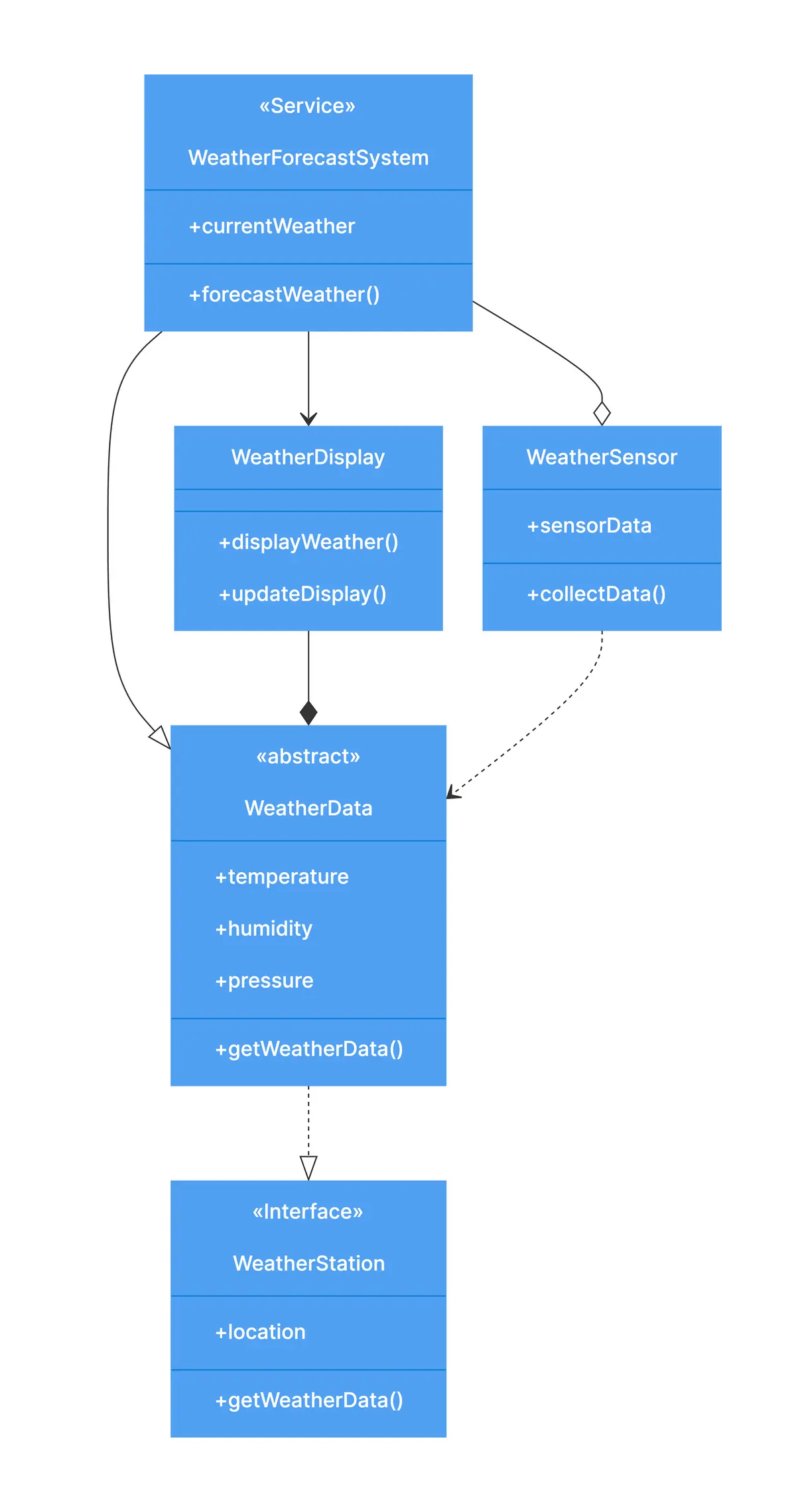This UML class diagram for a Weather Forecasting System highlights the relationships between entities such as WeatherForecastSystem, WeatherData, WeatherStation, WeatherDisplay, and WeatherSensor. The WeatherForecastSystem manages current weather data and forecast generation. It interacts with WeatherData, which stores temperature, humidity, and pressure information, while WeatherStation provides an interface for gathering weather data. WeatherDisplay updates and shows the forecast, while WeatherSensor collects sensor data. The system connects with WeatherData through both WeatherStation and WeatherDisplay, and it integrates with WeatherSensor to collect real-time data for forecasting purposes.

Edit this diagram in Gleek
Weather forecasting system diagram code in Gleek
WeatherForecastSystem:service
+currentWeather
+forecastWeather()
WeatherData:abstract
+temperature
+humidity
+pressure
+getWeatherData()
WeatherStation:interface
+location
+getWeatherData()
WeatherDisplay
+displayWeather()
+updateDisplay()
WeatherSensor
+sensorData
+collectData()
WeatherForecastSystem--*>WeatherData
WeatherData-.-*> WeatherStation
WeatherForecastSystem-->WeatherDisplay
WeatherForecastSystem --<> WeatherSensor
WeatherDisplay--<*> WeatherData
WeatherSensor -.-> WeatherData
About class diagrams
Class diagrams are used in software engineering to describe the structure of a system. A class diagram uses Unified Modeling Language (UML) to show the classes, attributes, methods (or operations), and their relationships to each other in the system. Class diagrams prove valuable in object-oriented modeling. Class diagrams can be used to model the data structure or to design a system in detail.
Similar class diagram examples
Library management system class diagram
Restaurant management system class diagram
Video rental system class diagram